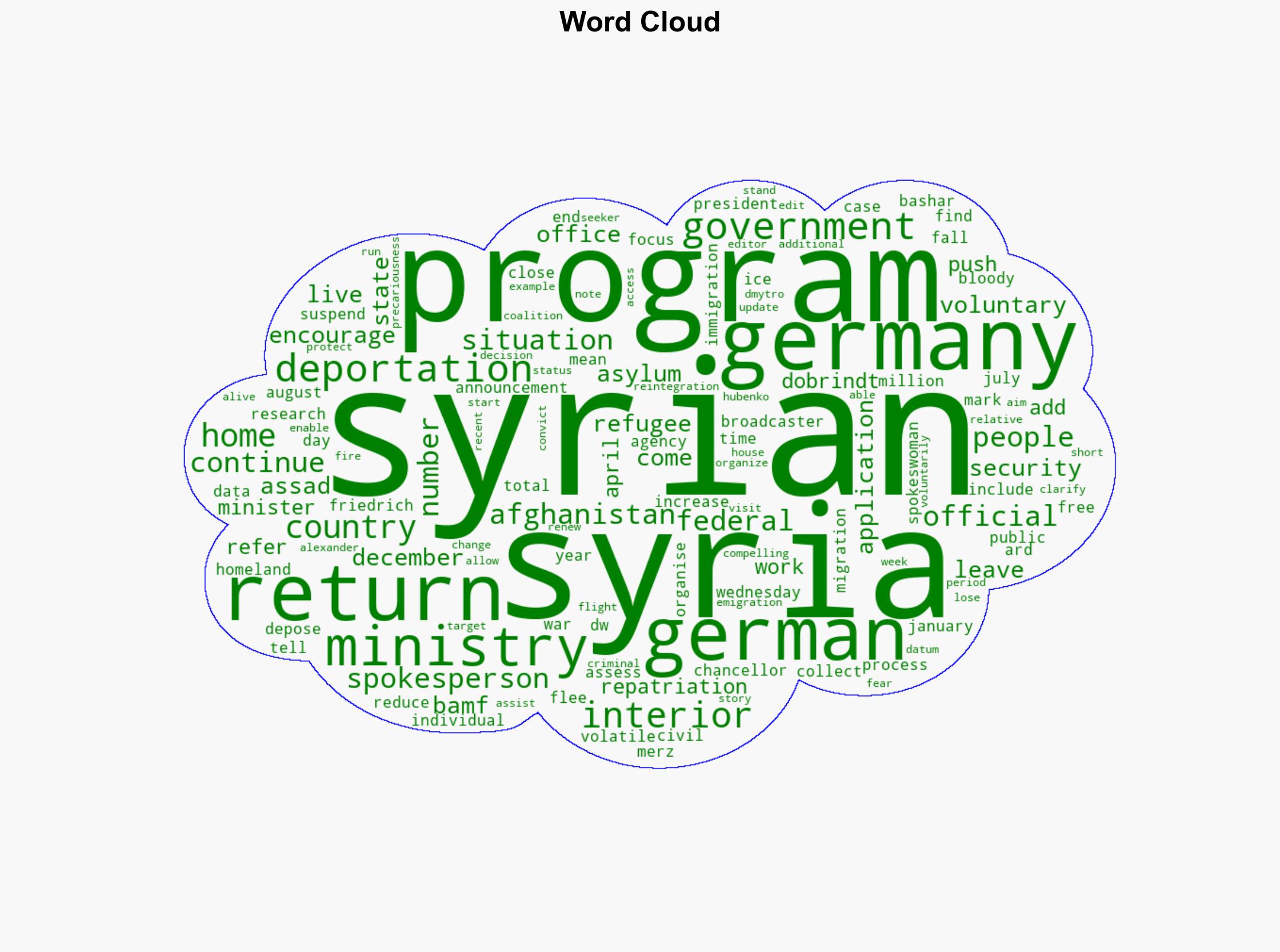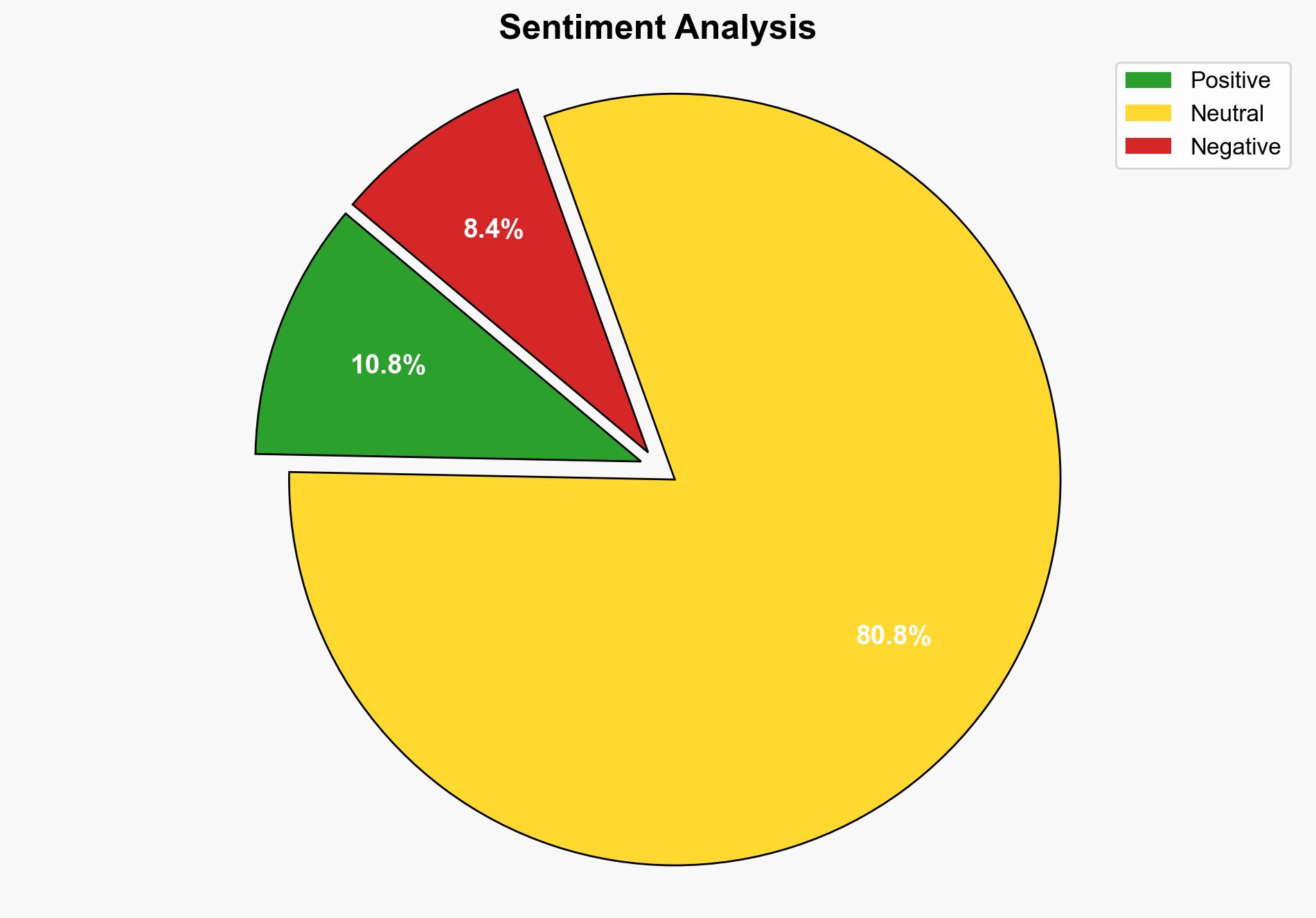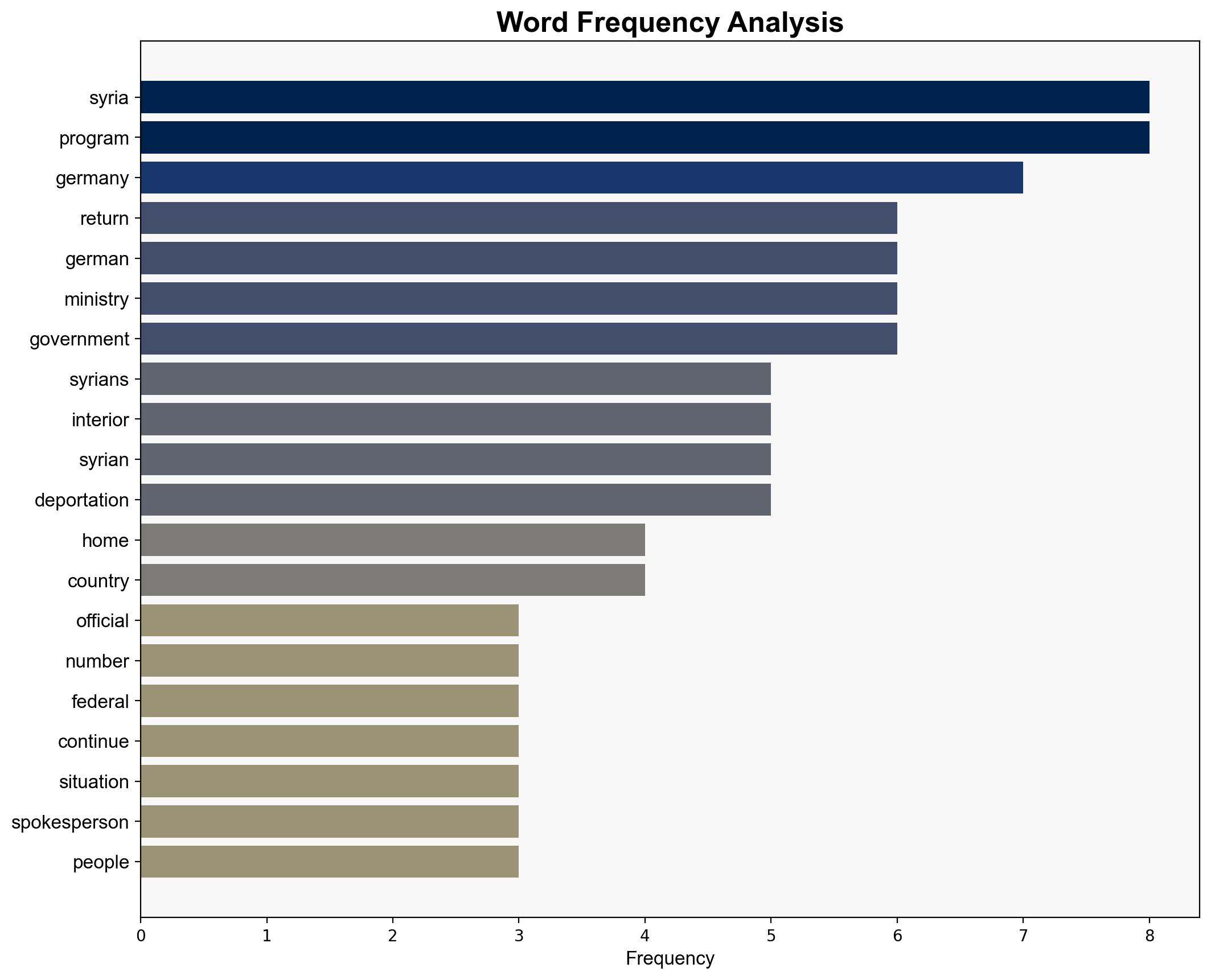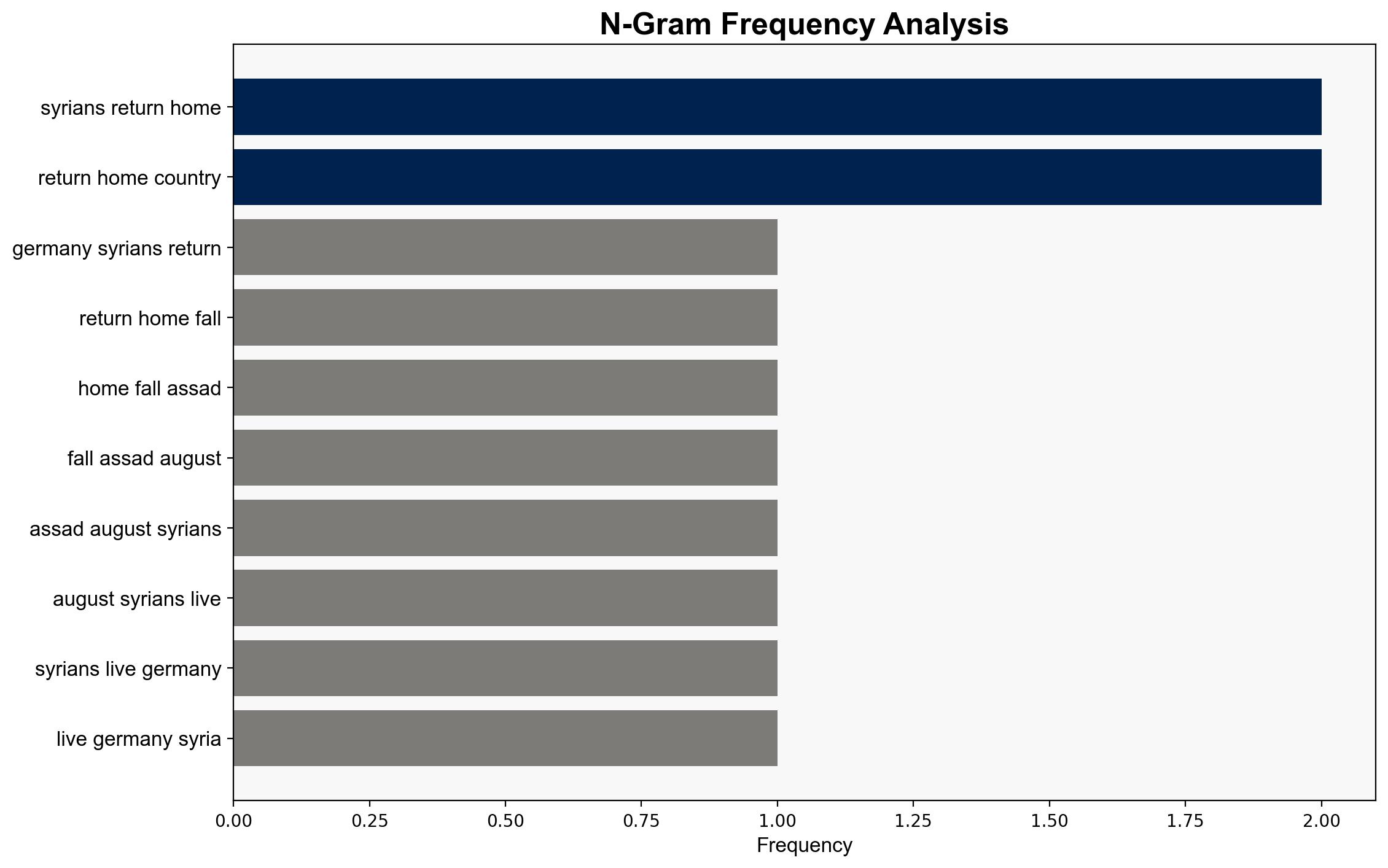Germany 1300 Syrians return home since fall of Assad – DW (English)
Published on: 2025-08-13
Intelligence Report: Germany 1300 Syrians Return Home Since Fall of Assad – DW (English)
1. BLUF (Bottom Line Up Front)
The most supported hypothesis is that Germany’s policy shift towards encouraging voluntary return of Syrians is primarily driven by domestic political pressures to reduce immigration and manage asylum processes. Confidence level: Moderate. It is recommended that Germany continues to monitor the security situation in Syria closely and reassesses its policies regularly to ensure the safety and rights of returnees.
2. Competing Hypotheses
Hypothesis 1: Germany’s encouragement of Syrian returns is primarily motivated by domestic political pressures to reduce immigration and manage asylum processes effectively. This aligns with Chancellor Friedrich Merz’s focus on reducing immigration and increasing deportations.
Hypothesis 2: The policy shift is a response to perceived improvements in Syria’s security situation, allowing for safe returns. This is supported by the suspension of asylum applications and the organization of voluntary return programs.
Using ACH 2.0, Hypothesis 1 is better supported due to the explicit political statements and actions by German officials focusing on immigration control, whereas the security situation in Syria remains volatile and questionable for safe returns.
3. Key Assumptions and Red Flags
Assumptions:
– Hypothesis 1 assumes that political motivations outweigh humanitarian concerns in policy decisions.
– Hypothesis 2 assumes that the security situation in Syria has improved sufficiently for safe returns.
Red Flags:
– Lack of detailed data on the security conditions in Syria that justify the return policy.
– Potential bias in reporting due to political agendas within Germany.
– Inconsistencies in the number of returnees and the nature of their return (voluntary vs. pressured).
4. Implications and Strategic Risks
The encouragement of returns could lead to humanitarian risks if the security situation in Syria deteriorates. This policy might strain Germany’s international relations if perceived as neglecting refugee rights. Additionally, there is a risk of domestic unrest if the policy is seen as too harsh or unjust.
5. Recommendations and Outlook
- Germany should enhance monitoring mechanisms in Syria to ensure returnee safety.
- Engage in diplomatic efforts to stabilize Syria further, potentially reducing future refugee flows.
- Scenario Projections:
- Best Case: Improved security in Syria leads to sustainable returns and reduced asylum pressures in Germany.
- Worst Case: Returnees face danger in Syria, leading to international backlash and domestic unrest.
- Most Likely: Continued political debate in Germany with gradual returns under close monitoring.
6. Key Individuals and Entities
– Friedrich Merz
– Alexander Dobrindt
– German Interior Ministry
– Federal Office for Migration and Refugees (BAMF)
7. Thematic Tags
national security threats, immigration policy, refugee rights, geopolitical strategy





